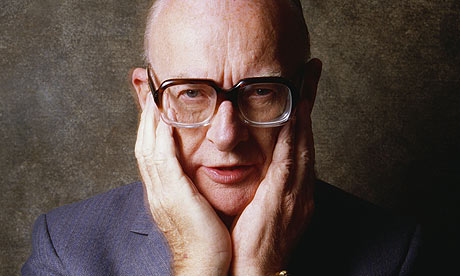
Because I enjoyed the Arthur C Clarke award ceremony so much last year, walking back into the foyer of the award venue in the Apollo Cinema in central London last night was reassuring in its familiarity. I had to push past a couple of stormtroopers to get into the hot fug of the crowded foyer, I saw several men sporting Gandalf beards and my nerdometer went into overdrive when I mistook someone for the publisher of one of the nominees, asked if he was nervous and he said:
"I'm not too bad. I've been here before so I know what to expect. It's actually quite nice to get out of the house."
It was only later in the conversation that it emerged that he had been pulling my leg and the joke was on me.
But, no matter. I was having a nice evening. The most pleasing repetition from last year was the excited atmosphere and the general conviction that this award wasn't just about media exposure and money for the winner. The fans and organisers seemed to share the genuine belief – no doubt inherited from Arthur C Clarke himself – that SF can be a force for good. These books can inspire scientific exploration and discovery as well as amuse and entertain. And that – as someone said – is a worthwhile endeavour in a country where university physics departments are closing because of a lack of interest rather than a lack of funding. Marek Kukula, the public astronomer from the Royal Observatory, proved the point in a short and sweet keynote speech in which he explained how he owed his career path and continuing sense of wonder to the SF he read as a teenager.
It was all quite heartening even if this sense of continuity and lack of cynicism seemed at odds with the world outside the Apollo Cinema. If anyone was worried about swine flu, for instance, they weren't letting on. As someone pointed out to me, there was no point worrying anyway because the room we were in was so crowded that "we're all fucked anyway. And that's assuming that the tube journey here hadn't got them first".
"It," noted another, "at least provides excellent opportunity to accessorise. I haven't been able to get away with wearing a face mask in public since the days of rave".
Maybe such nonchalance will seem horribly blasé in a few days. Hopefully, it will seem quite the right attitude. I took comfort from the fact that so many science-minded people, (who were also almost certainly well-versed in seriously frightening apocalyptic fiction scenarios) didn't seem to think that the purported pandemic worth a mention.
It was also the first gathering I've been to in a long time where I didn't overhear a single conversation about the recession. Admittedly, my ear-wigging was limited by the fact that the room was too busy to easily move from conversation to conversation, but my overriding impression was one of unusual optimism.
And I did at least manage to overhear a fantastically awkward encounter between two women walking into the prize-giving auditorium:
"Who are you here with?" asked the first.
"I'm one of the judges," the replied the second.
"Ah."
Things weren't made easier by the fact that the first lady had recently been a judge herself, clearly thought she should be seen to know more about the current panel, and started falling over herself in apologies. Nor was the embarrassment allayed by my own cack-handed attempt to act the journalist and get the current judge to tell me how the voting had gone. She wasn't allowed to say. Quite rightly, the Clarke judges are expected to keep schtum before the announcement – although a nervous strained expression and a few vague words about it being pretty tough really, did suggest certain difficulties.
This was confirmed by Paul Billinger, the chair of the judges, who said in the run-up to the envelope-opening that the choice of the winner had been "particularly difficult and particularly close" and that his job had mainly involved "keeping the judges on the right track without killing each other".
When the announcement came, however, it met with a roar of approval. It was Ian R MacLeod's Song Of Time. As the most overtly literary and perhaps even flowery, on the shortlist, the book might seem at odds with the ceremony's emphasis on the importance of hard science. But then again, this artfully composed novel certainly has the inspiration aspect of the Clarke mission covered. Even the packaging of this book is beautiful, and it's good to see a clear labour of love from a small press getting such a boost.
MacLeod was literally speechless as he walked up to collect his prize. He'd prepared nothing in advance, claiming to have been certain that he wouldn't win. But the few words he managed were all the more touching for being so shambolic. The whole event had once more been a most uplifting experience. And if I don't catch swine flu because of it I will remember it fondly once again.

